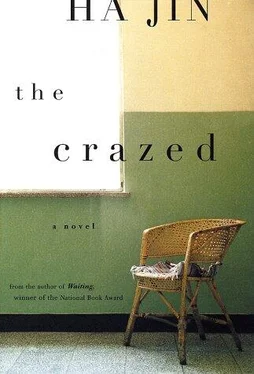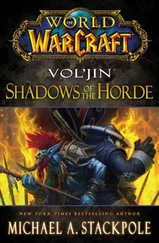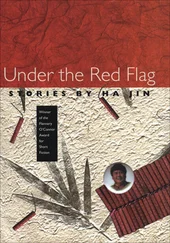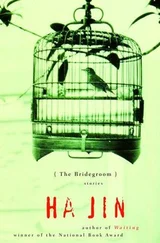To me the worst part of Mr. Yang’s death was that he had died in hatred. Did he save his soul? Probably not. Possessed by the desire for vengeance, he couldn’t possibly have attained the spiritual ascent he had striven for. He failed to liberate his soul from the yoke of malevolence. His soul must still have bogged down in the muck of this life.
His death shook me to the core. In my mind a voice kept dictating, “At all costs you mustn’t die a death like his!” This sentence reverberated in my head for the rest of the day. It wasn’t just about death. It presupposed that I must live differently in order to avoid a virulent end. As a human being, I should spend my life in such a way that at the final hour I could feel fulfillment and contentment, as if I had completed a task or a journey. One doesn’t have to be an accomplished scientist, or a consequential official, or a billionaire, or a great artist to feel that death is no more than a natural change like a sleep after a long day’s work. In short, death should be a comedy, not a tragedy. This realization strengthened my resolve to leave the university for the Policy Office.
For most of the next day I lay in bed thinking about Mr. Yang’s last moment and about how to talk to Meimei when she got back. It rained the whole morning, frogs croaking like crazy outside. In the afternoon the sun came out, but it was so muggy that the bamboo mat underneath me remained sticky. I hated this enervating climate. Unlike my hometown in the Northeast, there was seldom a brisk breeze here in spring or summer.
Toward dinnertime, when the loudspeaker began to play the song “Both Hands Water Happy Flowers,” my stomach at last rumbled, reminding me that I had not eaten lunch. I wouldn’t go to the dining hall because Little Owl might pick on me again; instead, I went to Deli Bite, a noodle joint nearby that had opened recently. It stood next to a grand Gothic church, built by German missionaries in the nineteenth century, which had served as a depot for cotton yarn for over three decades. A year ago the church had been renovated and reopened; now hundreds of people went to it on Sunday mornings. As I walked toward the church, I noticed that its windows, formerly glassless, were all glazed now, some of the panes flashing in the setting sun. The peaked towers looked awesome, though the belfry was still empty.
Through the window of Deli Bite I saw two large wicker baskets sitting on the glass countertop, both covered with white quilts. They must have contained twisted rolls and wheaten cakes stuffed with pork and chives. I’d heard that noodles here were especially good, so I bought a radish soup and a plate of noodles fried with slivers of lean pork and mung bean sprouts. At an empty table in a corner I sat down, eating unhurriedly.
The owner of this place was a middle-aged woman, who was so stout that she had no neck and her bare arms resembled two long loaves of bread. Her small eyes were almost buried in their hanging lids. She was fiddling with the beads on an abacus; once in a while she slapped at a fly with a leather swatter. Although she looked cranky, I liked this place. Different from state-owned restaurants, it was relatively clean and quiet here. Besides, it offered cheaper food.
As I was eating, a squat man sauntered in. He must have been a peasant, in his mid-forties, having a mud-colored face, piggy eyes, a severe underbite, and cupped ears. He was stripped to the waist and wearing only black slacks, secured above his hips with a band made of the same cotton cloth as that of his trousers. His triangular breasts jiggled a little as he walked. His body reminded me of a Buddha’s, though his pudgy face showed no benevolence.
“A bowl of noodles with fried soya paste,” he drawled as if speaking through his nose, and handed a banknote to the woman behind the counter.
In a little while a large bowl of noodles with a pair of connected chopsticks standing in its middle was put before him. The woman stretched out her hand to deliver the change. The man counted the money, then his sparse eyebrows knotted together. “Why did you charge me five fen more?” He spoke loudly for everybody to hear. Besides me there was only one other customer eating in this place.
“Don’t you have eyes?” the woman asked sharply.
“Why did you shortchange me?”
“No, I didn’t.”
“Give my five fen back, now!” He threw up his hands.
“Can’t you see the pair of chopsticks on top of the noodles? That costs five fen. You’re not blind, are you?”
“I don’t want them chopsticks. You gave me that yourself.” He pointed his index finger at the woman while his other hand took a green plastic spoon out of his cloth waistband. He waved it and said, “I have my spoon. Who wants your shit-digging sticks?”
“Watch your mouth!” she yelled. “I have no change for you. Clear out of here, will you?”
“Uh-uh, not till you give my money back.”
“Okay, you stay here. I’ll give you something for change. I’ve never met a customer cheaper than you.”
“You’re cheap, you gyp people.”
Arms akimbo, he stood by the counter waiting patiently while the soybean paste atop the noodles was sending up steam. I was amazed that they were fighting over such a trifle, just five fen, which wasn’t worth the anger they had worked up. I was curious to see how this squabble would end.
Then out of the kitchen came a tall young man in jeans, the cuffs of which were tucked in knee-high rubber boots. He looked savage, with sloping eyes and an athletic build; a knife scar curved at the corner of his mouth. “You’re the bum that wants money?” he shouted, and went straight to the waiting customer, who was too petrified to make a peep. The man seized the peasant’s hair with his left hand; with his right fist he started punching him in the face. “This is your change! Take this!” he kept saying through his teeth.
The peasant was groaning and stamping his foot. “Ow! Ow!” he yelled, trying in vain to cover his face with both hands. He struggled desperately but couldn’t break loose from the thug, who was striking him harder and harder.
This was too much, worse than robbery. The other diner, an old lecturer in sociology, hurriedly finished his meal and made for the door. I stood up and went across to the brute. “Cool it! That’s enough,” I said firmly, glaring at him. He stopped and inadvertently let go of the peasant. “You mustn’t beat your customer up like this,” I added.
“Who the fuck do you think you are?” he exploded. “This is none of your business.”
“It is my business to stop you from committing a crime, ” I insisted.
To my surprise, he turned and walked away toward the kitchen. He shouted at me over his shoulder, “You wait for me there! Damn you, you act like a ghost that’s never afraid of death. I’m going to give you a test.”
The peasant was still gasping with tears. Dark bruises appeared on his face, and his eyes had become puffy, almost sealed. He bent forward, loosened his waistband, and retied it. On the floor were his broken spoon and drops of blood from his nose. As soon as I handed him a piece of paper, the young thug rushed over with a cleaver in his hand. At the sight of the knife the peasant cringed, then dropped to his knees, begging, “Master, please spare my worthless life! I won’t come to make trouble again.” He clasped his hands before his chest and then put them down on the floor. Shamelessly he began to kowtow, knocking the concrete floor as if his head were a block of wood. I took a deep breath and tried to refrain from trembling.
Initially the brute had come for me, but the racket the peasant made invited him to deal with him first. He said to him with a wicked smirk, “Come again whenever you like. You’re always welcome.” He raised the cleaver over the man’s head.
Читать дальше

![Lao Zi - Dao De Jing [Tao Te Ching] (english)](/books/3890/lao-zi-dao-de-jing-tao-te-ching-english-thumb.webp)
![Lao Zi - Dao De Jing [Tao Te Ching] (chinese)](/books/3891/lao-zi-dao-de-jing-tao-te-ching-chinese-thumb.webp)
![Lao Zi - Dao De Jing [Tao Te Ching] (espanol)](/books/3892/lao-zi-dao-de-jing-tao-te-ching-espanol-thumb.webp)







